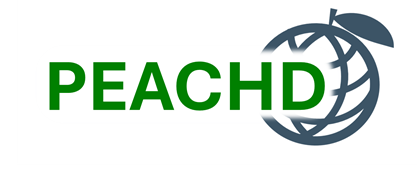Integrated cancer prevention through lifestyle risk factors: adapting and operationalising the WHO BRIEF approach (PEACHD)
Background
Cancer is responsible for almost a quarter of all annual deaths in the World Health Organisation (WHO) European Region. This will increase by more than 34% by 2040. In Europe, cancer inequalities are observed between different populations and the most disadvantaged socio-economic groups are disproportionately affected. In addition, the healthcare demand is outstripping the resources available in European health systems, especially in those countries hosting larger numbers of refugees. This fact highlights the urgent need to implement effective and efficient prevention initiatives.
In this context, WHO proposes brief interventions that integrate various modifiable risk factors to promote healthy lifestyles.
Objectives
The PEACHD project aims to develop and evaluate an integrated brief screening and counselling intervention for the major modifiable risk factors for chronic diseases (smoking, alcohol, physical inactivity, unhealthy diet, obesity and sun exposure), based on the WHO BRIEF model, to be delivered and evaluated in several European countries.
The specific aims of PEACHD are:
- To develop a face-to-face programme and a digital tool to deliver an integrated brief intervention for multiple modifiable risk factors.
- To provide training in integrated brief intervention to health professionals, mainly in primary and community care.
- To deliver and evaluate the integrated intervention to 31,000 people from the general population, taking into account the socio-economic level and axes of inequality of the population, especially in the case of migrant or exiled populations.
Methodology
PEACHD is an implementation science project adapting, implementing and evaluating the WHO-EU BRIEF approach in different European contexts, with a particular focus on supporting displaced populations in Ukraine and lower socio-economic groups to reduce health inequities.
The action will use a participatory process to define, co-design and adapt intervention tools in line with the objectives of the EU Joint Action on cancer and other noncommunicable diseases.
These tools will be tested for feasibility in three EU Member States: Poland, the Czech Republic and Spain (Catalonia). Special attention will be paid to two vulnerable groups: migrants and displaced persons (in particular Ukrainian refugees) and populations with low socio-economic status.
Project duration
3 years (February 2024 – February 2027)
Funding
1.249.999,68 euros
Project Partners
- Fundació de Recerca Clínic Barcelona- Institut d’Investigacions Biomèdiques August Pi i Sunyer (FRCB-IDIBAPS – Spain)
- Hospital Clínic de Barcelona (HCB – Spain)
- Institut Català d’Oncologia (ICO – Spain)
- Fundació Institut d’Investigació Biomèdica de Bellvitge (IDIBELL – Spain)
- Warszawski Uniwersytet Medyczny (MUW – Poland)
- Univerzita Karlova (CUNI – Czechia)
- Departament de Salut – Generalitat de Catalunya (GENCAT – Spain)
- Servico de Intervencao nos Comportamentos Aditivos e nas Dependencias (SICAD – Portugal)
Main Researcher
Hugo López (Hospital Clínic)
UCT Research Team
Dr. Cristina Martínez (PI: WP3)
Laura Perdiguero (Project manager)





